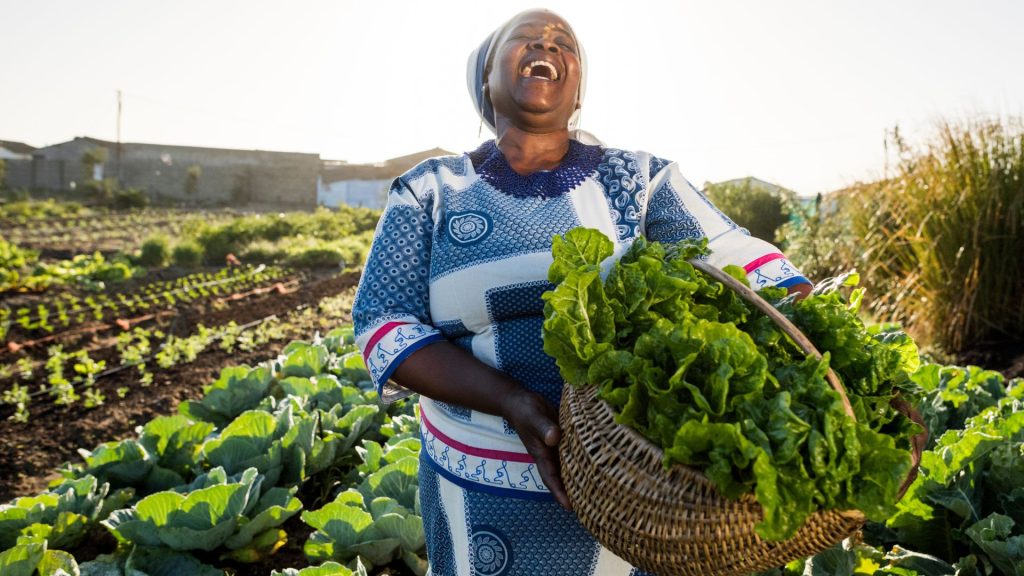Environmental impact is a crucial concern for Kenya’s agricultural sector, its lifeblood. Traditional farming practices can deplete soil nutrients, waste water resources, and contribute to biodiversity loss. Here at Profama, we believe sustainable trade is not just about fair prices and empowered farmers; it’s also about protecting Kenya’s precious environment for future generations. Let’s explore how Profama’s work promotes environmentally friendly agriculture and minimizes the environmental impact of Kenyan agriculture.

Challenges to Environmental Sustainability in Kenyan Agriculture
In the realm of Kenyan agriculture, environmental sustainability faces numerous challenges. Traditional farming practices often deplete soil nutrients, waste water resources, and contribute to biodiversity loss. However, Profama is dedicated to addressing these challenges through sustainable trade initiatives. Let’s explore how Profama is working to minimize the environmental impact of agriculture in Kenya.
- Soil Degradation: Overuse of chemical fertilizers and unsustainable practices can deplete soil nutrients, leading to reduced fertility and erosion.
- Water Scarcity: Inefficient irrigation techniques can waste precious water resources, especially in drought-prone regions.
- Biodiversity Loss: Monoculture farming practices and deforestation reduce habitat diversity, harming wildlife populations and disrupting natural ecosystems.
Profama: Championing environmental impact on Sustainable trade Practices
Profama actively promotes environmentally friendly practices among Kenyan smallholder farmers through sustainable trade initiatives. Here are some key areas of focus:
- Soil Conservation: We encourage practices like crop rotation, cover cropping, and composting, which improve soil health, fertility, and water retention.
- Water Management: Profama promotes water-saving irrigation techniques like drip irrigation and rainwater harvesting, ensuring efficient water use and minimizing waste.
- Promoting Organic Farming: We encourage the adoption of organic farming methods that rely on natural fertilizers and pest control techniques, reducing reliance on harmful chemicals and protecting soil health.
- Biodiversity Protection: Profama supports practices that promote biodiversity, such as planting hedgerows and maintaining natural habitats around farms. This encourages beneficial insects and pollinators while reducing reliance on pesticides.
- Sustainable Land Management: We educate farmers on sustainable land management practices like terracing and contour plowing to prevent soil erosion and protect valuable topsoil.
The Benefits of Environmental impact on Sustainable Trade
Profama’s commitment to sustainable trade in Kenya offers numerous environmental benefits:
- Reduced Carbon Footprint: Sustainable practices promoted by Profama, like organic farming and reduced soil tillage, contribute to mitigating climate change by reducing greenhouse gas emissions.
- Improved Water Quality: By minimizing water waste and promoting organic farming, Profama helps to protect water sources from contamination by chemicals and fertilizers.
- Enhanced Ecosystem Health: Sustainable agriculture practices create healthier ecosystems with higher biodiversity, promoting natural pest control and a more balanced environment.
Conclusion To evironmental impact for Sustainable Trade
Profama’s dedication to sustainable trade goes beyond economic empowerment and fair prices. We are committed to fostering a future where Kenyan agriculture thrives in harmony with the environment. By promoting sustainable practices among farmers, we can achieve a reduced environmental impact, protect Kenya’s natural resources, and ensure a more sustainable future for all.
Join Profama in cultivating a greener future for Kenya! Partner with us, volunteer your expertise, or choose products that support sustainable trade practices. Together, we can ensure a thriving agricultural sector that nourishes both people and the planet.

